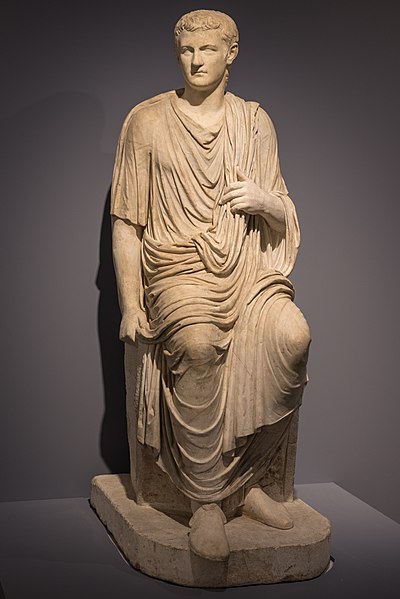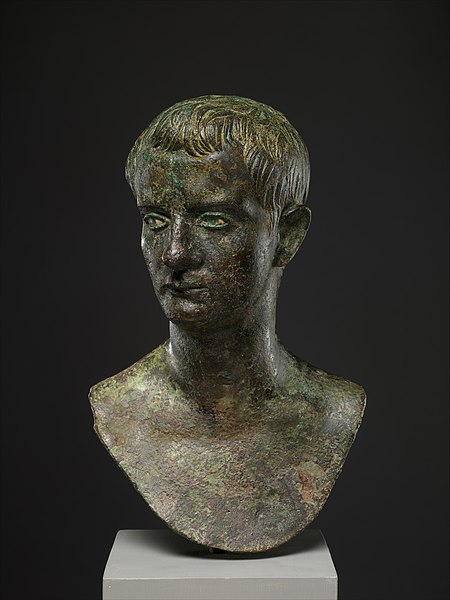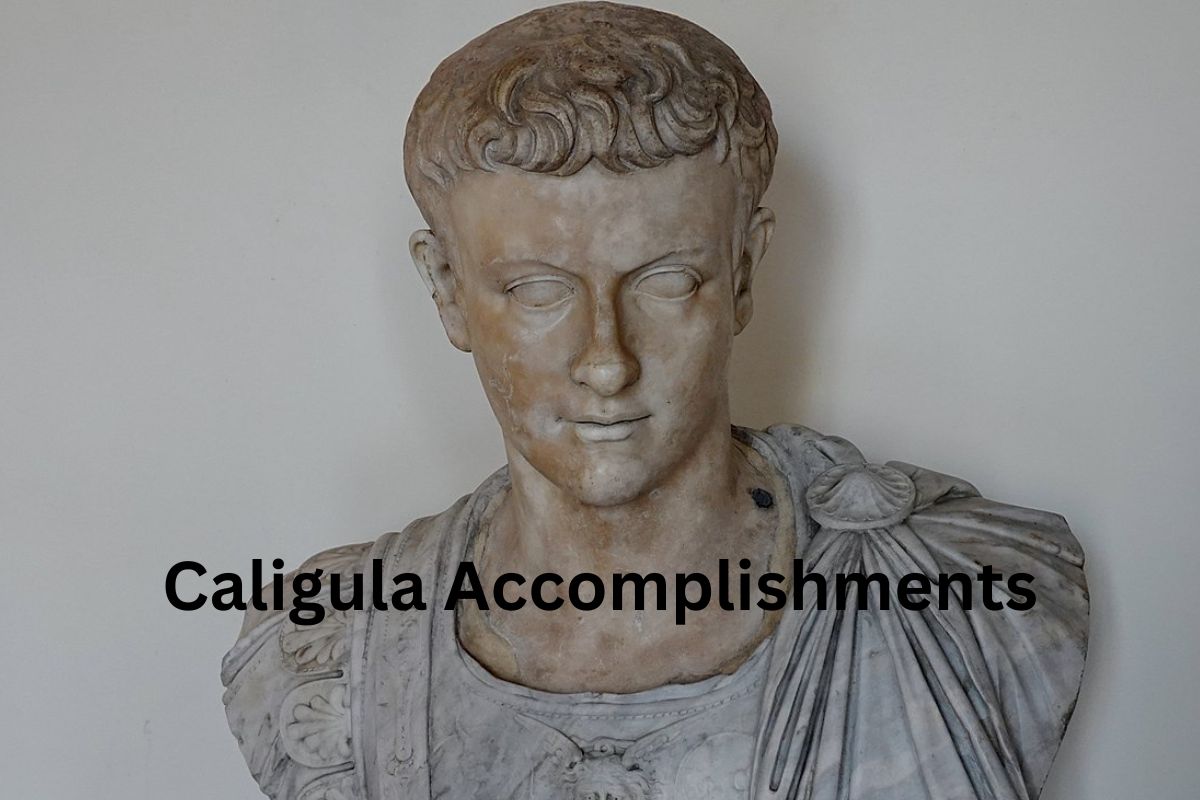Caligula, also known as Gaius Julius Caesar Augustus Germanicus, was the third Roman emperor who ruled from 37 AD to 41 AD.
Initially, he implemented some beneficial policies, but quickly descended into erratic behavior, indulging in excesses and cruelty. His ambitious infrastructure projects and military campaigns left a mixed legacy. Caligula’s reign ended with his assassination, and he is remembered as a cautionary tale of absolute power.
While his reign is often remembered for his tyrannical and extravagant behavior, there were some notable accomplishments attributed to Caligula during his short time in power.
Accomplishments of Emperor Caligula
1. Expanded the imperial port at Ostia
Caligula undertook a significant expansion of the port of Ostia, which served as Rome’s main maritime gateway. The expansion aimed to accommodate larger ships and increase the port’s capacity for trade and commerce.
This project included the construction of new docks, warehouses, and facilities to handle goods more efficiently. The improved infrastructure at Ostia facilitated the movement of goods to and from Rome, boosting the city’s economy and trade networks.

2. Completed various public works projects
Caligula initiated and completed several public works projects during his reign. These projects aimed to improve infrastructure and transportation across the Roman Empire. He invested in the construction of new aqueducts, roads, and bridges.
The aqueducts, such as the Aqua Claudia and Anio Novus, enhanced the water supply to Rome, providing clean water to its citizens and promoting better sanitation. The roads and bridges improved connectivity between cities and regions, facilitating trade and communication.
3. Increased the pay for soldiers
Recognizing the importance of a strong and loyal military, Caligula increased the salaries of Roman soldiers. This action aimed to boost morale among the troops and improve their loyalty to the empire.
By offering higher pay, Caligula sought to attract more capable recruits and ensure the army’s effectiveness in maintaining order and defending the empire’s borders.
The increased salaries also aimed to address the financial hardships faced by soldiers and their families, providing them with a better quality of life and incentivizing their dedication to the empire.
4. Extended the Roman Empire’s borders
During his reign, Caligula achieved some military successes by expanding the borders of the Roman Empire. He secured alliances with client kingdoms and brought certain regions under Roman control.
Caligula conducted military campaigns in areas such as Mauretania (modern-day Algeria and Morocco), where he asserted Roman dominance. Additionally, he intervened in the affairs of client kingdoms like Thrace and Judea, asserting Roman influence in those regions.
These efforts aimed to strengthen the empire’s territorial holdings and increase its strategic advantage.

5. Initiated the construction of two new aqueducts
Caligula ordered the construction of the Aqua Claudia and Anio Novus aqueducts. These aqueducts played a crucial role in improving the water supply to Rome.
The Aqua Claudia, one of the most impressive aqueducts of the time, was built to bring water from distant sources into the city. It required the construction of long channels, tunnels, and arches to transport water over significant distances.
The Anio Novus aqueduct also contributed to the water supply, bringing water from the Anio River. These aqueducts provided a more reliable water source for Rome’s growing population, ensuring sufficient water for public baths, fountains, and private residences.
6. Repealed certain unpopular taxes
Caligula repealed certain taxes that had been imposed during the reign of his predecessor, Tiberius, which were considered burdensome and unpopular among the Roman citizens. By repealing these taxes, Caligula aimed to gain favor and support from the people.
This action alleviated some of the financial strain on the populace and improved their economic well-being. Repealing unpopular taxes helped to foster a more positive public perception of Caligula’s reign, at least initially, and demonstrated his willingness to address the concerns of the Roman citizens.
7. Restored treason trials to the Senate
Caligula transferred the authority to conduct treason trials from the imperial court to the Senate. This decision aimed to restore some power and influence to the Senate, which had been diminished under previous emperors.
By involving the Senate in the process of handling treason cases, Caligula sought to reinforce the importance of the Senate as a governing body and to establish a balance of power. However, it is worth noting that Caligula’s motive behind this decision may also have been to manipulate political rivals or settle personal scores rather than to genuinely empower the Senate.
8. Hosted extravagant games and spectacles
Caligula organized grand games, spectacles, and chariot races for public entertainment. These events were marked by lavishness, opulence, and extravagance. Caligula aimed to display his wealth, power, and magnificence to the Roman people.
These spectacles were not only sources of entertainment but also opportunities for Caligula to garner support and adulation from the public. They were grandiose displays of his imperial status and served to enhance his image and popularity among the Roman citizens.
9. Instituted public feasts and distributions
Caligula introduced public feasts and distributions of food and other goods to the Roman populace. These distributions aimed to alleviate poverty, hunger, and social unrest. Caligula wanted to project an image of benevolence and care for the welfare of the common people.
By providing free food and other goods, he sought to gain favor and loyalty from the lower classes. These public distributions were seen as acts of generosity and aimed to improve the lives of the less fortunate while further solidifying Caligula’s position as a benefactor of the Roman people.
10. Commemorated his family through monuments and statues
Caligula honored his family, particularly his late father Germanicus, by constructing various public monuments and statues dedicated to them. These commemorations served to emphasize the importance of his familial lineage and to reinforce his legitimacy as an emperor.
Caligula’s construction of monuments and statues also aimed to solidify his own place in history and to ensure that his family’s legacy endured. By commemorating his family in this way, he sought to project an image of respect, piety, and dynastic continuity, which were significant aspects of Roman political culture.
